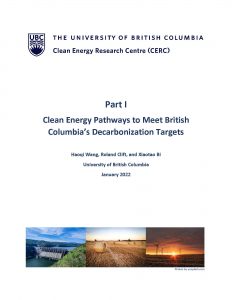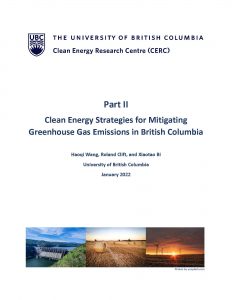Clean Energy Pathways and Strategies to Meet British Columbia’s Decarbonization Targets
A team of engineers at the University of British Columbia has found that British Columbia’s current plan to meet its Paris emissions reduction targets for 2030, as set out in CleanBC: Roadmap to 2030, will not be successful unless drastic changes are made to the way the province produces and uses clean and renewable energy.
British Columbia is often considered to possess a surplus of renewable energy, but that is far from the truth. There is currently not enough electricity and bioenergy in the province to meet the demand projected by 2030, even if energy consumption is cut by a quarter in 2030.
British Columbia must therefore use all available renewable electricity and bioenergy resources and promote a balanced renewable energy portfolio. This means fully exploiting existing waste biomass like forest residuals and agricultural residuals and municipal solid wastes, as well as installing hundreds of wind turbines and millions of solar panels.

